David Orchard-WebbApril 01, 2024
Tag: Saccharin , Aspartame , Sugar replacement
The discovery of sugar replacements over 100 years agon has led to the development and widespread use of various artificial and natural sweeteners. Among the most common sugar substitutes are saccharin, aspartame, stevia, sucralose, and cyclamate. Saccharin, discovered in the late 19th century, gained popularity during times of sugar shortages and remains a widely used synthetic sweetener today. Aspartame, commercially introduced in the 1980s, quickly became a staple in low-calorie products despite ongoing safety controversies. Stevia, a natural sweetener derived from the Stevia rebaudiana plant, has surged in popularity as a calorie-free alternative to sugar, praised for its natural origin and potential health benefits. Sucralose, synthesized from sucrose, offers sweetness without calories and is found in numerous low-calorie and sugar-free items. Lastly, cyclamate, once popular but now banned in the United States due to safety concerns, continues to be utilized in other countries, such as Canada, under varying regulations. Each of these sugar replacements offers consumers alternatives to traditional sugar with unique characteristics and regulatory considerations.
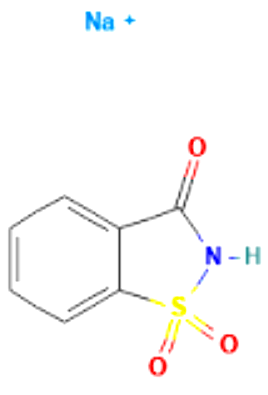
"Anyone who says saccharin is injurious to health is an idiot." - President Theodore Roosevelt, 1907
Saccharine was discovered in 1879 and patented in 1885 by Constantin Fahlberg, a chemist at Johns Hopkins University, is a synthetic sweetener with extraordinary sweetness and negligible caloric content. Fahlberg accidentally discovered saccharin's sweet taste while working with coal tar derivatives.
Saccharin gained widespread popularity during World War I when sugar shortages prompted its use as a sugar substitute. Its commercialization soared further during the sugar rationing of World War II. Despite controversies over its safety, saccharin's sales continued to rise, reaching new heights in the mid-20th century with the advent of diet sodas and other low-calorie products. Today, saccharin remains a widely used sugar substitute, contributing to the sweetness of countless food and beverage products worldwide.
Today, health authorities, including the World Health Organization (WHO), the European Food Safety Authority (EFSA), and the Food and Drug Administration (FDA), agree with Theodore Roosevelt that saccharin is safe for human consumption.
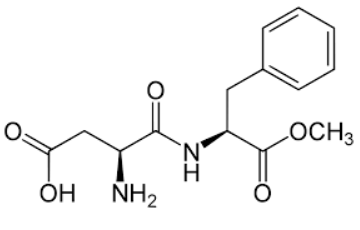 Aspartame, discovered in 1965 by James M. Schlatter, a chemist working for the pharmaceutical company G.D. Searle & Company, revolutionized the artificial sweetener industry with its intense sweetness and low-calorie content. Initially approved for use in dry goods in 1981 and for carbonated beverages in 1983, aspartame quickly became one of the most popular sugar substitutes worldwide.
Aspartame, discovered in 1965 by James M. Schlatter, a chemist working for the pharmaceutical company G.D. Searle & Company, revolutionized the artificial sweetener industry with its intense sweetness and low-calorie content. Initially approved for use in dry goods in 1981 and for carbonated beverages in 1983, aspartame quickly became one of the most popular sugar substitutes worldwide.
Despite its widespread use, aspartame has faced persistent controversy regarding its safety. Some studies have suggested potential links between aspartame consumption and adverse health effects such as headaches, dizziness, and even cancer. However, comprehensive reviews conducted by regulatory agencies such as the FDA, the EFSA, and the WHO have consistently concluded that aspartame is safe for human consumption within established acceptable daily intake levels.
Despite ongoing debates, aspartame remains a key ingredient in numerous diet sodas, sugar-free candies, and other low-calorie products, offering sweetness without the guilt of excess calories.
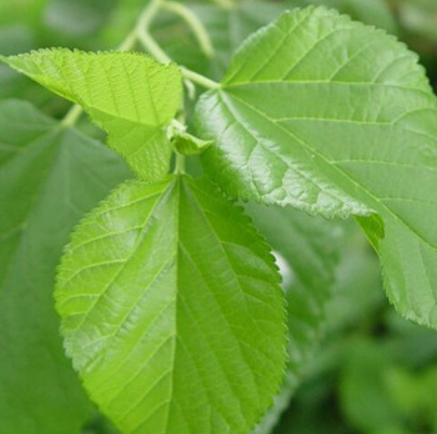 Stevia, a natural sweetener derived from the leaves of the Stevia rebaudiana plant, has been used for centuries by indigenous peoples in South America. Its extract, known as steviol glycosides, contains compounds such as stevioside and rebaudioside, which provide sweetness without the calories of sugar.
Stevia, a natural sweetener derived from the leaves of the Stevia rebaudiana plant, has been used for centuries by indigenous peoples in South America. Its extract, known as steviol glycosides, contains compounds such as stevioside and rebaudioside, which provide sweetness without the calories of sugar.
In recent years, stevia has gained popularity as a natural alternative to artificial sweeteners like saccharin and aspartame. Its sweetening power is several times that of sucrose, making it an attractive option for those seeking to reduce their sugar intake without sacrificing sweetness.
Stevia has received generally positive attention from health authorities, with studies suggesting potential benefits such as blood sugar control and weight management. Regulatory bodies such as the FDA, the EFSA, and the WHO have approved the use of high-purity stevia extracts as a sweetener in various food and beverage products.
Today, stevia can be found in a wide range of products, including soft drinks, desserts, and tabletop sweeteners, offering consumers a natural, calorie-free alternative to sugar
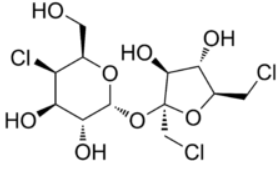 Sucralose, discovered in 1976 by researchers at Tate & Lyle and subsequently patented in 1976, has become one of the most widely used artificial sweeteners globally. Derived from sucrose through a process that selectively substitutes three hydroxyl groups with chlorine atoms, sucralose provides sweetness without the calories of sugar.
Sucralose, discovered in 1976 by researchers at Tate & Lyle and subsequently patented in 1976, has become one of the most widely used artificial sweeteners globally. Derived from sucrose through a process that selectively substitutes three hydroxyl groups with chlorine atoms, sucralose provides sweetness without the calories of sugar.
Since its approval for use as a tabletop sweetener in 1998 and its subsequent approval for use in various food and beverage products, sucralose has found its way into numerous low-calorie and sugar-free items. Its stability under heat and pH variations makes it suitable for a wide range of applications, from baked goods to carbonated beverages.
While some concerns have been raised about potential health risks associated with sucralose consumption, including effects on gut microbiota and insulin response, regulatory agencies such as the FDA, the EFSA, and the WHO have concluded that sucralose is safe for human consumption within established acceptable daily intake levels.
Despite occasional controversies, sucralose remains a popular sugar substitute, offering consumers a sweet taste without the added calories of sugar.
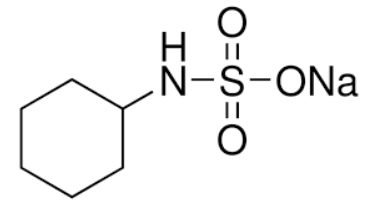 Cyclamate, discovered in 1937 by graduate student Michael Sveda at the University of Illinois, gained popularity in the mid-20th century as a low-calorie artificial sweetener. Often used in combination with saccharin to enhance sweetness, cyclamate provided a sugar-like taste without the caloric content.
Cyclamate, discovered in 1937 by graduate student Michael Sveda at the University of Illinois, gained popularity in the mid-20th century as a low-calorie artificial sweetener. Often used in combination with saccharin to enhance sweetness, cyclamate provided a sugar-like taste without the caloric content.
However, in 1969, following studies linking cyclamate consumption to bladder cancer in laboratory rats, the FDA banned its use in food and beverages in the United States. Subsequent research has produced conflicting results regarding the carcinogenicity of cyclamate, leading to ongoing debates over its safety.
While cyclamate remains banned in the United States, it is still permitted for use in many other countries, albeit with varying regulations and restrictions. Some nations have imposed limits on its use, while others allow it without restriction. For example, cyclamate is not banned in Canada and is available as a sweetener in brands such as Sugar Twin.
In conclusion, the exploration of sugar replacements reveals a diverse array of options catering to varying tastes, preferences, and health considerations. From saccharin's historical significance to stevia's natural appeal, and from aspartame's controversial journey to sucralose's widespread acceptance, each sweetener offers a unique profile of sweetness and potential benefits. However, ongoing debates surrounding safety, often related to the bladder, underscore the importance of continued research and regulatory oversight of artificial sweeteners. As consumers navigate options to reduce sugar intake, understanding the characteristics and implications of these alternatives is paramount. Whether seeking calorie-free sweetness or exploring natural options, the landscape of sugar replacements continues to evolve, shaping dietary preferences and impacting public health perceptions worldwide.
1. https://www.pharmasources.com/products/searchKey-Saccharin-countall-n-page-1
2. https://www.pharmasources.com/products/searchKey-Aspartame
3. https://www.pharmasources.com/products/searchKey-Stevia
4. https://www.pharmasources.com/products/searchKey-Sucralose
5. https://www.pharmasources.com/products/searchKey-Cyclamate
David Orchard-Webb, Ph.D., is a technical writer with broad interests including health & technology writing, plus extensive training and knowledge of biomedicine and microbiology. My Ph.D. and postdoc were in oncology and developing cancer medicines. I provide technical medical and other writing services for projects ranging from “knowledge automation” to pure pharma, to food safety, to the history of science, and everything in between. I also provide white papers, ebooks, meta-analysis reviews, editing, consulting, business, and market research-related activities in biomedicine, technology, and health. In addition to its well-known role in the development of medicines, I am a big believer in biotechnology’s ability to revolutionize industries such as food-tech, agtech, textiles & fashion.


Contact Us
Tel: (+86) 400 610 1188
WhatsApp/Telegram/Wechat: +86 13621645194
+86 15021993094
Follow Us:




 Pharma Sources Insight July 2025
Pharma Sources Insight July 2025


